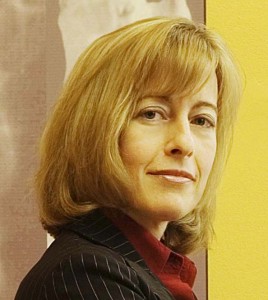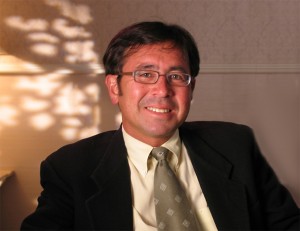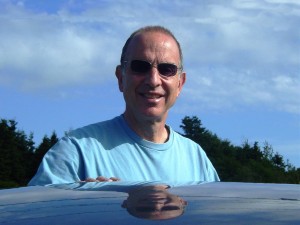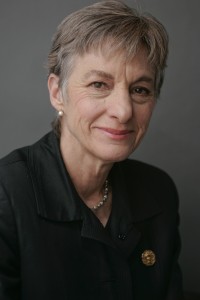 Ila Berman / CCA: moderator – Session 1
Ila Berman / CCA: moderator – Session 1
Dr. Ila Berman, Director of Architecture at the California College of the Arts (CCA), is an architect and architectural theorist who holds a doctorate from Harvard University. Dr. Berman is the recipient of many awards including the Lieutenant Governor’s Medal for Design, SSHRC Fellowships and the President’s Award at Tulane University, where she was the Associate Dean of the School of Architecture until 2007 and founding Director of URBANbuild. Berman’s design work and publications on architectural and urban territories include URBANbuild local global; New Orleans: Strategies for a City in Soft Land—by Harvard University focused on river edge development, and From Grid to Matrix, an analysis of shifting paradigms in late 20th century architectural practice. Additional publications are included in the AD Territory: Architecture Beyond Environment, Next AEDS—part of a book series on global emergent practices in the field of digital, multi-media and net-based architectural design, Intricacy: Art, Architecture and New Media, and Sustainable Skyscrapers: Vertical Ecologies and Urban Ecosystems, as well as PRAXIS, JAE, Cityscape, APPENDX, and c3Korea among others. Since becoming the Director of Architecture at CCA, Berman has founded three project-based R+D labs on urbanism, ecology, and digital, interactive and interdisciplinary media to expand networks for architectural research, design and practice. These labs have realized many projects including FLUX: Architecture in a Parametric and 10×10 Cities—a collaboration with AIASF focused on urban sustainability for San Francisco. In addition to her exhibitions at the Contemporary Art Center, the Ogden Museum, the Perloff Gallery and many other public and private institutions, she also created “New Orleans: Urban Mappings for a Future City,†an exhibition in the U.S. Pavilion at the 2006 International Architectural Biennale in Venice, Italy, that was recently toured in Bangkok, Panama City and Los Angeles.
 Jim Misener /UCB PATH – Towards Deploying an Automated Highway System: Practical Steps for a Practical Solution?
Jim Misener /UCB PATH – Towards Deploying an Automated Highway System: Practical Steps for a Practical Solution?
Jim Misener is currently an Executive Advisor for Booz Allen Hamilton but is the former Executive Director of University of California Partners for Advanced Transit and Highways (PATH). Established in 1986, California Partners for Advanced Transit and Highways (PATH) is administered by the Institute of Transportation Studies (ITS) at the University of California, Berkeley, in collaboration with Caltrans. PATH is a multi-disciplinary program that focuses on Intelligent Transportation Systems (ITS). PATH became well known in 1997 when, in collaboration with Federal, State and private sector partners, eight cars showing a prototype Automated Highway System was demonstrated in San Diego on I-15. Since then, Jim’s work has focused on deployment issues, to include the recent proliferation of wireless technologies and mobility and safety services in transportation delivered over the air.
 Sven Beiker / Stanford CARS, Autonomous Driving – When technology is not enough?
Sven Beiker / Stanford CARS, Autonomous Driving – When technology is not enough?
Sven Beiker is the Executive Director of the Center for Automotive Research at Stanford – CARS.
CARS is dedicated to re- envision the automobile and so is Sven as the program’s manager. His motivation is to bring academia and industry together to shape the automotive future. Since spring 2009 he has been lecturing the Stanford class “The Future of the Automobile” to educate students in interdisciplinary automotive thinking and to get students involved with the industry early on.
Before joining Stanford University, Sven used to work at the BMW Group for more than 13 years. Between 1995 and 2008 he pursued responsibilities in technology scouting, innovation management, systems design, and series development.
 Chris Borroni-Bird / Director GM Advanced Technology Vehicle Concepts Personal Urban Mobility – Ultra-small vehicle design
Chris Borroni-Bird / Director GM Advanced Technology Vehicle Concepts Personal Urban Mobility – Ultra-small vehicle design
Dr. Christopher Borroni-Bird is Director of Advanced Technology Vehicle Concepts at General Motors and has led GM’s “Reinvention of the Automobile†program, which include the first vehicles designed from a clean sheet around electrification (AUTOnomy, Hy-wire and Sequel).
Most recently, he has extended this work to include connectivity and urbanization and is leading GM’s Personal Urban Mobility and Accessibility (PUMA) initiative. He is also the co-author of the book “Reinventing the Automobile: Personal Urban Mobility for the 21st Century†to be published by MIT Press in March 2010 (with MIT Professor William Mitchell and Dr. Larry Burns, former VP of R&D and Strategic Planning at GM).
 Ken Goldberg / UCB CITRIS – Innovation in Design
Ken Goldberg / UCB CITRIS – Innovation in Design
Ken Goldberg is an acclaimed artist and a professor at UC Berkeley. He holds the craigslist Distinguished Chair in New Media, and is Professor of Industrial Engineering and Operations Research, with secondary appointments in Electrical Engineering and Computer Science and in the School of Information. Ken’s art installations have been exhibited internationally at venues such as the Whitney Biennial, Pompidou Center in Paris, Buenos Aires Biennial, and the ICC in Tokyo. Goldberg received his PhD in Computer Science from CMU in 1990 and studied at the University of Pennsylvania, Edinburgh University, and the Technion. From 1991-95 he taught at the University of Southern California, and in Fall 2000 was visiting faculty at MIT Media Lab.
Goldberg directs the Berkeley Laboratory for Automation Science and Engineering where he and his students pursue research in Geometric Algorithms for Robotics and Automation, Networked Robots, and Medical Robotics. Goldberg and his students have published over 150 refereed research papers and edited four books. In 2004, Goldberg co-founded the IEEE Transactions on Automation Science and Engineering and served as Founding Chair of its Advisory Board. Goldberg was named National Science Foundation Young Investigator in 1994 and NSF/Whitehouse Presidential Faculty Fellow in 1995. Goldberg was elected to two terms as Vice-President of Technical Activities for the IEEE Robotics and Automation Society. He is the recipient of the Joseph Engelberger Award (2000), the IEEE Major Educational Innovation Award (2001) and was elected IEEE Fellow in 2005.
 Mona El Khafif / CCA: moderator РSession 2
Mona El Khafif / CCA: moderator – Session 2
Mona El Khafif is an Associate Professor of Architecture and Urban Design and Project Coordinator of the CCA URBANlab, who holds a doctorate in urban design from the TU Vienna. El Khafif worked in architectural offices in Germany and Vienna, on projects which received important urban design awards including the Otto Wagner Urban Design Award for the BUSarchitecture Homeworkers project and the Ortner & Ortner Museumsquartier. After teaching at the Instutute for Urban Design and Landscape Architecture at the TU in Vienna from 2000-2006, El Khafif joint the URBANbuild program at Tulane University in New Orleans to support studios at the urban and architectural scales in the aftermath or Hurricane Katrina from 2006-2008. El Khafif is a founding principal of phase 1 Fox_El Khafif_Nuhsbaumer, a co-author of URBANbuild local global, and has recently published Staged Urbanism: Urban Spaces for Art, Culture and Consumption in the Age of Leisure Society with VDM Publisher, 2009 in Germany.
 Therese Tierney /UIUC – Understanding the public realm: Application of Social Networking
Therese Tierney /UIUC – Understanding the public realm: Application of Social Networking
Therese Tierney is an Assistant Professor of Architecture with a Designated Emphasis in New Media at the University of Illinois Urbana Champaign. As the co-founding director of URL: Urban Research Lab, her research explores the intersection between emerging technologies and the built environment. She has been a pre-doctoral researcher at the MIT media lab, and a participant in University of California’s Berkeley Center for New Media, directed by Ken Goldberg. Tierney is the author of “Abstract Space: Beneath the Media Surface†(2007) and “Network Practice: New Strategies for Architecture + Design†(2007).
 Christine Outram / MIT SENSEable City Lab
Christine Outram / MIT SENSEable City Lab
Christine Outram’s research focuses on tackling problems of sustainability and livability in inner urban areas through harnessing the power of emerging technologies and distributed computing.
She is currently a Research Associate with MIT’s SENSEable City Lab where she is project leader for The Copenhagen Wheel – a wheel that turns ordinary bikes into electric hybrids with regeneration and real-time environmental sensing capabilities. This work debuted at the COP15 United Nations Climate Conference during December 2009 and will go commercial in 12 months time.
Prior to her research role at SENSEable City Lab, she received her SMArchS Architecture and Urbanism degree at MIT and her Masters of Architecture degree in Sydney, Australia. She has practiced in both architectural and urban design offices.
 Ken Greenberg / Greenberg Consultants – Urban Design Implications: Will it work?
Ken Greenberg / Greenberg Consultants – Urban Design Implications: Will it work?
Ken Greenberg is an architect, urban designer, teacher, writer, former Director of Urban Design and Architecture for the City of Toronto, founding partner of Urban Strategies Inc., and now Principal of Greenberg Consultants. For over three decades he has played a pivotal role on public and private assignments in urban settings throughout North America and Europe, focusing on the rejuvenation of downtowns, waterfronts, neighborhoods and on campus master planning, regional growth management, and new community planning.
He is the recipient of the 2010 American Institute of Architects Thomas Jefferson Award for public design excellence and is currently working on a book on cities with Random House. Ken is a frequent lecturer and teacher in both North America and Europe, inspiring professionals and students in thinking about the demographically diverse, post-industrial city. He has been the Charles Moore Visiting Professor of Architecture at the Taubman School at the University of Michigan and taught Masters studios in urban design at the Harvard Graduate School of Design, the University of Toronto, L’Université de Montréal, UC Berkeley and the University of Pennsylvania. He is a frequent contributor to the Mayor’s Institute for City Design. He is a Fellow of the Royal Canadian Institute of Architects, the Toronto Society of Architects and the Institute for Urban Design as well as a frequent participant in the Mayors Institutes. His work has garnered awards from the Canadian Institute of Planners, Progressive Architecture, the City of Toronto, the Canadian Architect, the American Planning Association and the American Institute of Architects.
 Cathy Simon / Perkins+Will – Organic vs. deterministic: Do we loose control?
Cathy Simon / Perkins+Will – Organic vs. deterministic: Do we loose control?
Cathy Simon leads Perkins+Will’s the San Francisco office Civic, Corporate + Commercial Market Sector, which encompasses everything from mixed-use buildings to housing to civic institutions, from the reinvention of historic structures to large-scale urban design projects. Perkins+Will San Francisco’s portfolio includes award-winning work around the Bay Area, across the U.S., and around the world. Cathy’s focus on transformative design is evident at all scales. Her larger-scale work is best exemplified by San Francisco’s Ferry Building, a once-disused relic reborn as a public marketplace and the site of the nation’s most highly-regarded farmer’s market, as well as a place of vibrant community.
Cathy’s design philosophy and expertise have made her a natural spokesperson for the burgeoning revitalization of post-industrial waterfronts worldwide. Along the San Francisco waterfront, besides the Ferry Building, she has been responsible for dramatic work refashioning multiple piers and new neighborhoods including Mission Bay and Treasure Island, and the current work of crafting Mission Rock, the new district at Seawall Lot 337. She is much in demand as a speaker and teacher on issues of urbanization, revitalization, and the ways and means of creating these vibrant places that nurture the growth of community.
 Peter Albert / SF MTA – Reality Check: Hey this is my town you’re talking about!
Peter Albert / SF MTA – Reality Check: Hey this is my town you’re talking about!
Peter Albert is the Deputy Director of Planning at the San Francisco Municipal Transportation Agency, and oversees planning for all modes of transportation. This includes the Bicycle Program and Pedestrian program, which support the Shape Up program by making walking and bicycling an every-day part of life in San Francisco.
Peter came to SFMTA in 2006 after seven years at BART. A major focus of his work was to ensure walkable communities around transit stations. Prior to BART, Peter managed the development of the Countywide Transportation Plan with the San Francisco County Transportation Authority, and worked as an architect, urban designer and transportation planner for 11 years at the San Francisco Planning Department. Peter earned a Bachelor of Architecture degree from Cal Poly San Luis Obispo and the University of Montréal, and a Masters of Urban and Regional Planning from San José State University in 1991.
